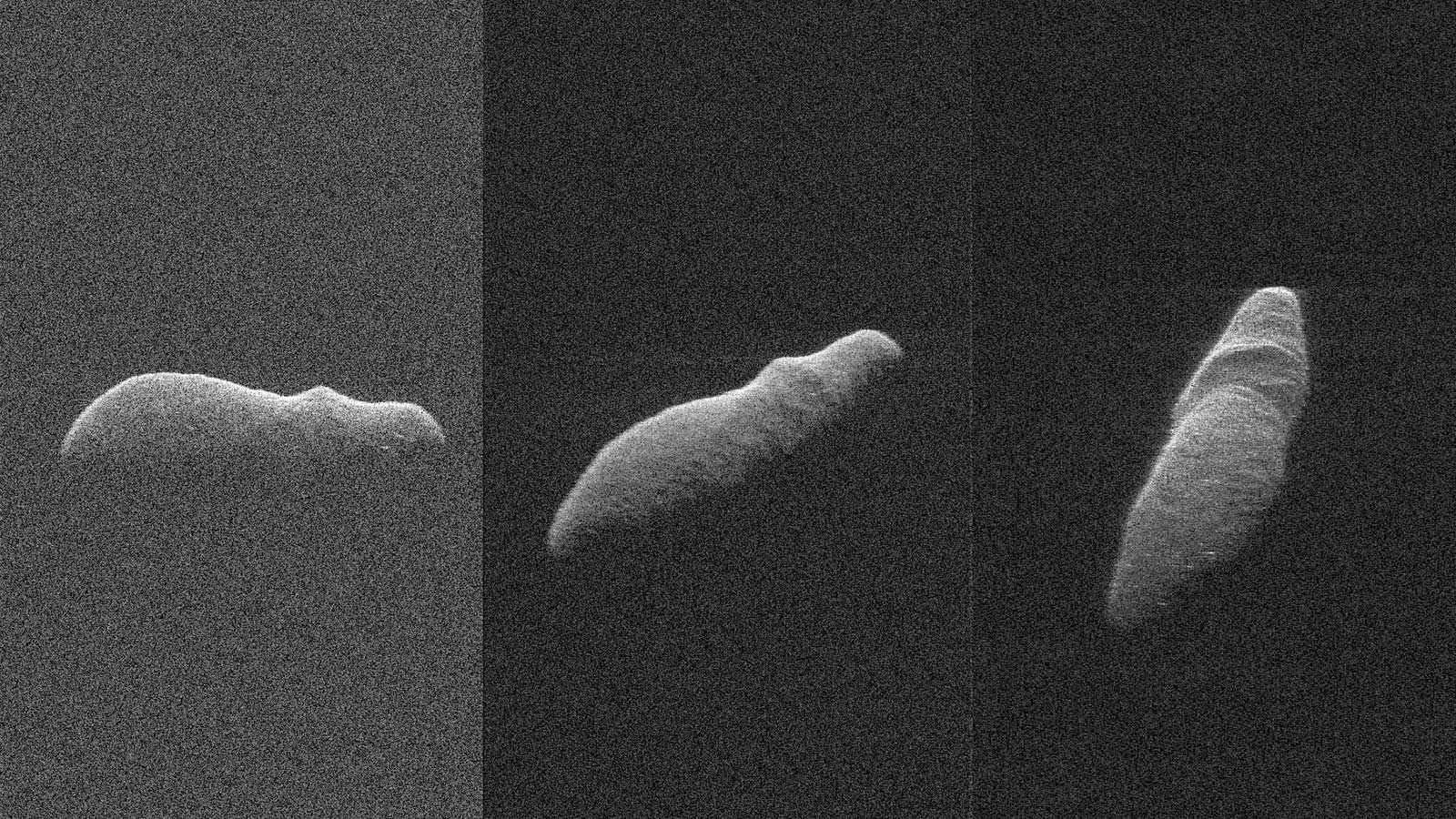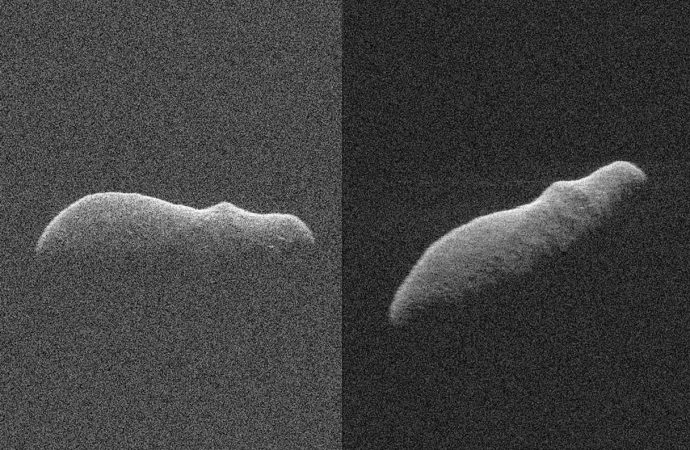Mile-long rock shaped like water-loving pachyderm is rotating lazily through space under close watch by scientists who feared it could be on a collision course
A mile-long, hippo-shaped asteroid which scientists have been tracking because of a potential collision risk with Earth has skimmed by on its closest approach for more than 400 years.
On Saturday the asteroid flew past at a distance of 1.8 million miles away from Earth and a closer pass will not occur until 2070.
SD220 was discovered in 2003 and is one of a number of “near-Earth objects” kept under close surveillance by astronomers because of the risk it may come too close for comfort.

“The radar images achieve an unprecedented level of detail and are comparable to those obtained from a spacecraft flyby,” said Lance Benner of the Jet Propulsion Laboratory in Pasadena, California, who led the observations.
“The most conspicuous surface feature is a prominent ridge that appears to wrap partway around the asteroid near one end.
“The ridge extends about 330 feet (100 metres) above the surrounding terrain. Numerous small bright spots are visible in the data and may be reflections from boulders.
“The images also show a cluster of dark, circular features near the right edge that may be craters.”
The images were achieved by coordinating three massive radio telescopes: Nasa’s 70-metre diameter antenna at the Goldstone Deep Space Communications Complex in California, the National Science Foundation’s 100m antenna in West Virginia, and Puerto Rico’s Arecibo Observatory, which has a diameter of 305 metres and featured in closing scenes of the film Goldeneye.

They confirm scientists’ suspicions from early images that SD220 has an unusual type of spin. It rotates slowly, once every 12 days, but rather than spinning around its shortest axis – the most common feature of near-Earth asteroids, it has an apparently wobbly spin like a poorly thrown rugby ball.
Understanding this pattern has helped refine its movements and safely discount the risk of a collision.
Source: Independent

































Leave a Comment
You must be logged in to post a comment.